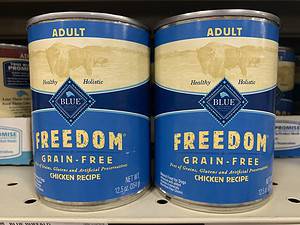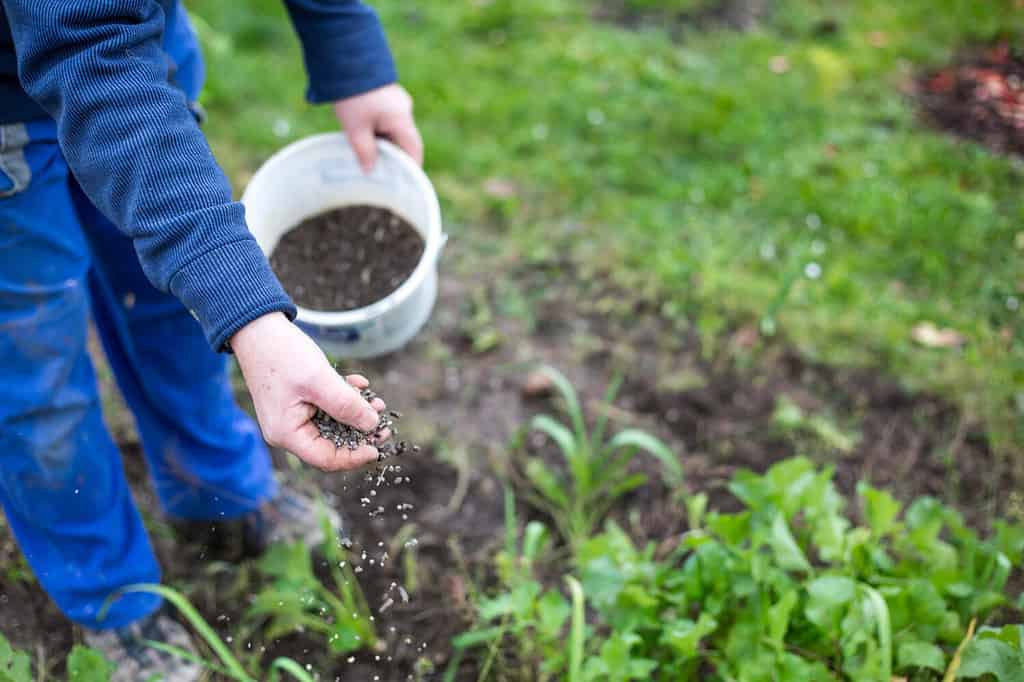
You add fertilizers to soil or plants to provide nutrients and sustain growth.
©Simon Kadula/Shutterstock.com
Are there legitimate reasons to buy and use organic fertilizers in your garden? Well, for starters, organic fertilizers improve soil structure and stimulate healthy root development.
There are many more reasons to choose organic fertilizer over synthetic. In this article, we dig into 10 more reasons, so you can decide if you want to create your own organic fertilizer or run to the store and buy it!
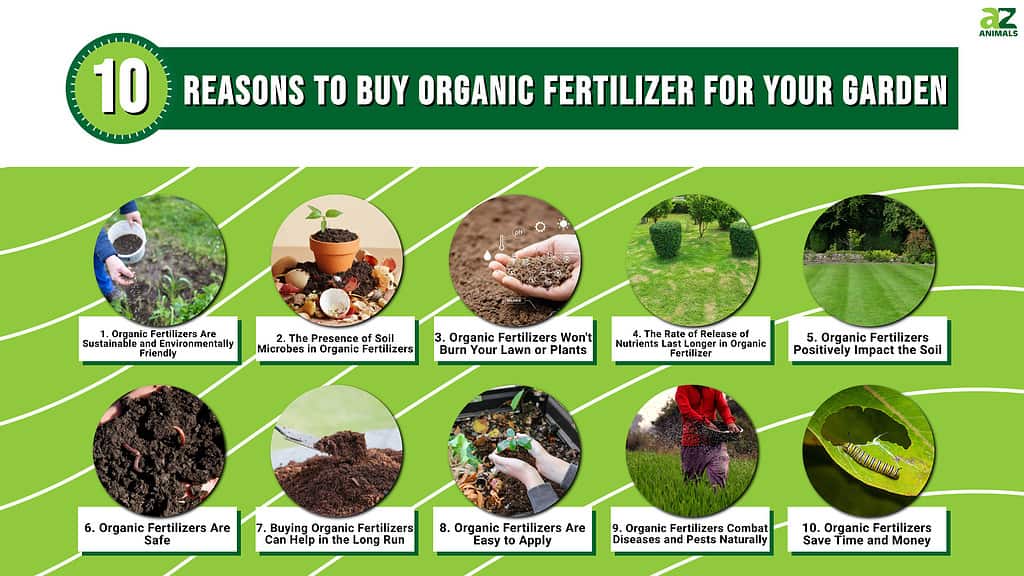
What is Organic Fertilizer?
In simple terms, organic fertilizers are fertilizers that are naturally produced. You add fertilizers to your soil, plants, or lawn to provide nutrients and sustain growth. Typically, organic fertilizers include animal waste, such as cattle manures, slurry, guano, or poultry droppings. These are all considered organic sources. Plant-based compounds such as compost and biosolids also make organic fertilizer. A biosolid compound is solid organic matter recovered from a sewage treatment process. Inorganic fertilizers contain minerals or ash. Some other organic fertilizers include peat, plant wastes from agriculture, and treated sewage sludge.
Organic fertilizer stimulates beneficial soil microorganisms. This then improves the structure of the soil. Soil microbes convert organic fertilizer into soluble nutrients so plants can absorb the nutrients. Fertilizers derived from organic materials also provide the secondary and micronutrients plants need that are absent in synthetic fertilizers. Below, we list more reasons to use organic fertilizers.
1. Organic Fertilizers Are Sustainable and Environmentally Friendly
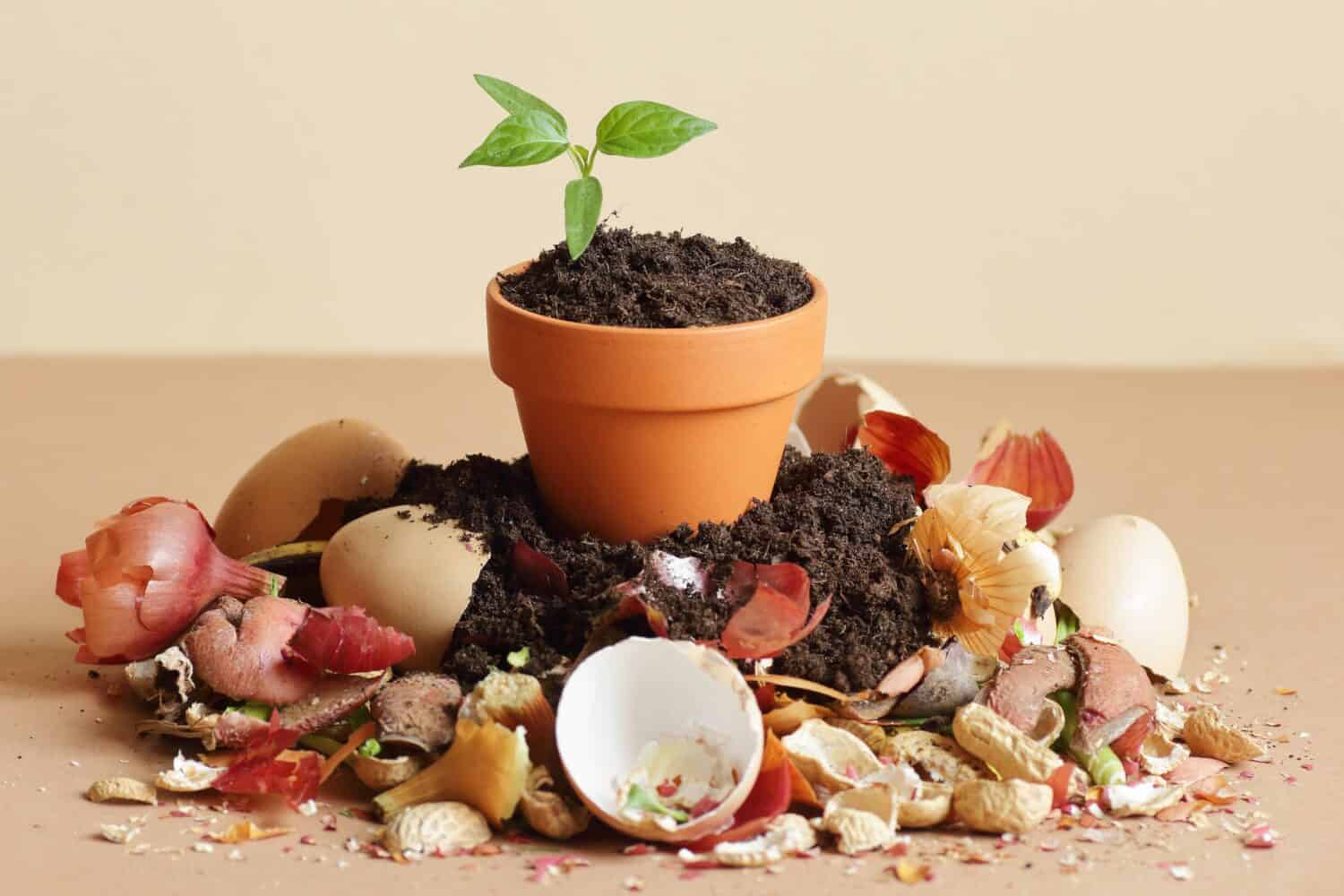
Organic fertilizers ensure the health of a garden for years to come.
©teatian/Shutterstock.com
Synthetic fertilizer chemicals run off into waterways. This pollution of groundwater caused by pesticides is a major problem. Organic fertilizers don’t run off as easily, if at all, and associate with soil structure.
Also, the pesticides in synthetic fertilizers are a major problem when it comes to runoff. These are replaced in organic fertilizers and prevent runoff because they enhance soil structure and water infiltration. Organic fertilizers give plants more nutrient-retentive abilities and greatly reduce the risk of groundwater pollution. In areas where pollution is a problem, it is encouraged to convert to organic agriculture.
2. The Presence of Soil Microbes in Organic Fertilizers
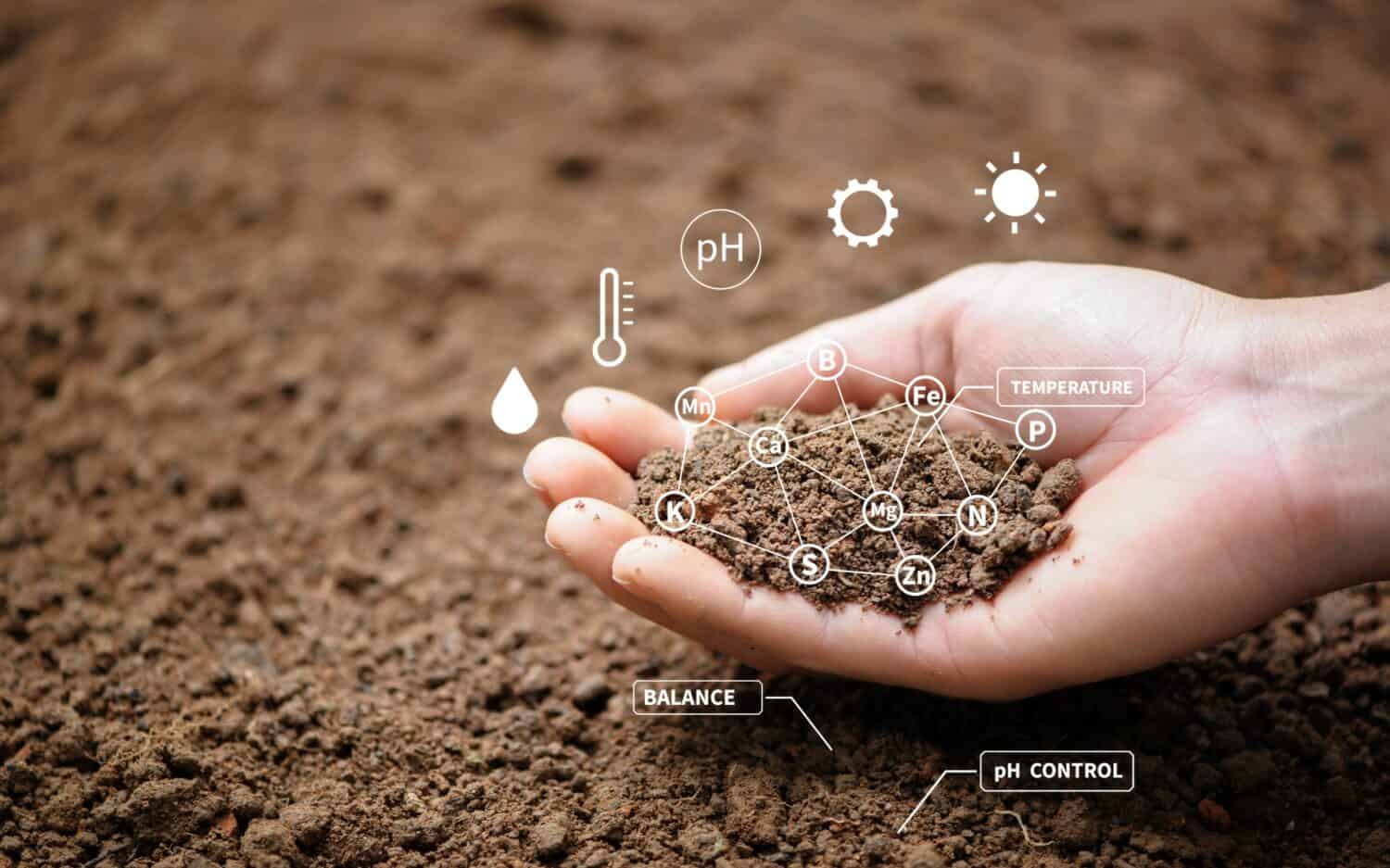
The organic matter in organic fertilizer provides sufficient nutrients to promote microbes.
©Deemerwha studio/Shutterstock.com
The presence of soil microbes plays an essential role in healthy soil. Organic fertilizers are rich in organic matter that helps microbes thrive. While synthetic fertilizer consists of chemical molecules without carbon, and these molecules can actually be disruptive and are not accessible to microbes.
What are Soil Microbes?
The term “microbes” is short for microscopic. Soil microbes are microscopic organisms that can’t be seen with the naked eye. They are critical to fertile soil and robust crops. Soil microbes are classified into four broad categories:
- bacteria
- protozoa
- fungi
- viruses
Also, organic fertilizers contain carbon as part of their chemical makeup. It is this carbon combined with nitrogen, phosphorus, and potassium that feed microbes. These nutrients enable them to make nutrients available for plants in a naturally occurring biological process. This cycling of nutrients helps provide a functional ecosystem.
Soil microbes also perform other fundamental functions such as helping break down crop residues and even stimulate root growth. Though these functions sound complex, they are vital. The presence of soil microbes from organic fertilizer plays an essential role in establishing and maintaining a thriving yard.
3. Organic Fertilizers Won’t Burn Your Lawn or Plants
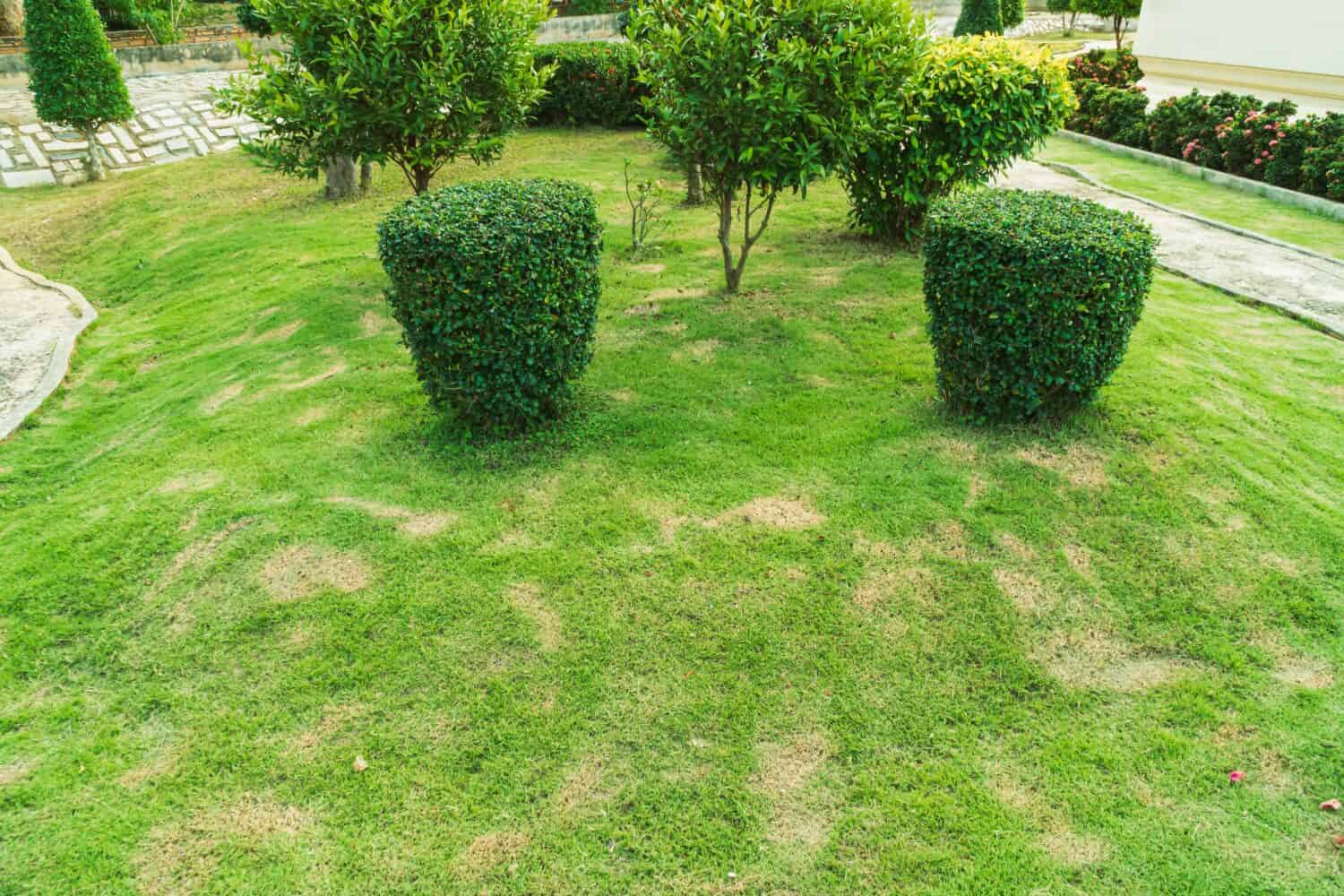
More is not better when it comes to fertilizers. Too much fertilizer causes lawn burn.
©SingjaiStocker/Shutterstock.com
Chemical burns from synthetic fertilizers result in lawns with brown and dead grass. Products in organic fertilizers generally won’t burn plants and lawns. Especially if they are used properly and don’t need to be watered in, which also conserves water.
Fertilizer burn happens when plants get more fertilizer than they can process. This can happen due to excessive fertilizer because fertilizer salts draw water away from plant roots and tissues. When this happens, it is a lot like a drought. Plants can’t take in the water they need, so they begin to yellow or brown and eventually die.
Fertilizer burn is most likely to occur in these conditions:
- Too much fertilizer is applied to the soil
- Lack of moisture in the soil or hot weather conditions, or a combination of both
- More likely to occur with quick-release fertilizers, organic fertilizers are usually always slow-release
4. The Rate of Release of Nutrients Last Longer in Organic Fertilizer

Organic slow-release fertilizer releases nutrients as the fertilizer decomposes.
©1000 Words/Shutterstock.com
The soil works hard to break down the organic fertilizers. This means both the soil and the plants get the nutrition they need at the time they need it. This plays into fertilizer burn because synthetic fertilizers often overfeed plants and don’t benefit the soil which causes the burn. The slower release of nutrients is due to the lower NPK analysis of organic fertilizers. This means they have less nitrogen, phosphorus, and potassium than synthetic fertilizers. However, they feed plants and soil over a longer period of time. As a result, it does take a little longer to see results, but the lawn stays greener longer.
Due to organic fertilizer slowly releasing nutrients, plants also grow at a more uniform rate. This also means that the plants develop a stronger root system which means they experience less stress and can handle disease and pest pressures. These slow-release organic fertilizers are also better for the environment. They are less likely to leach nutrients from the soil and are applied less often because they release supportive minerals over time.
5. Organic Fertilizers Positively Impact the Soil
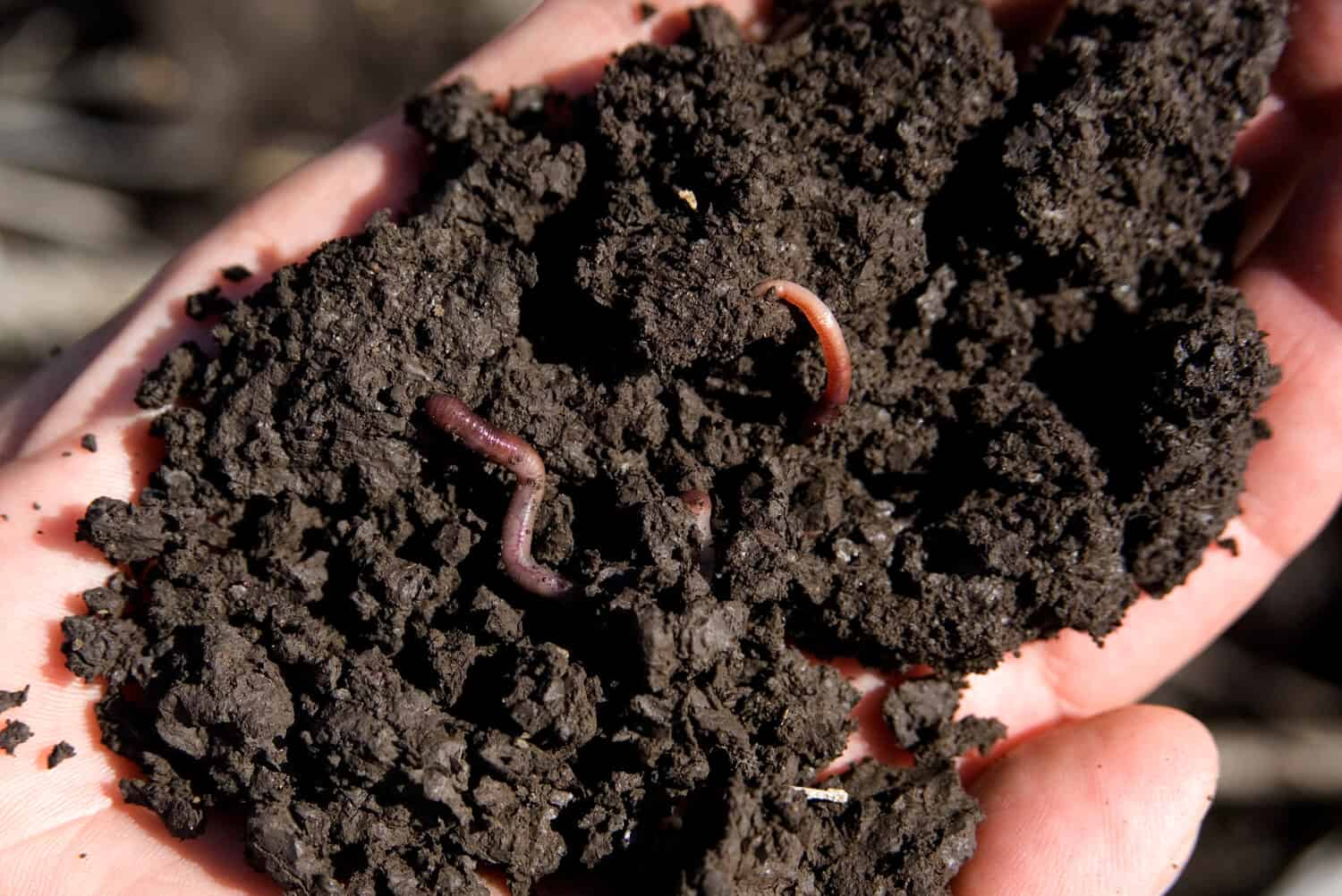
With organic fertilizer, the nutrients that are in the lower depths are made available to the plants.
©Alf Manciagli/Shutterstock.com
The matter in organic fertilizer improves the buffer capacity of the soil. This means it increases the soil’s ability to resist a change in pH. A change in pH affects the soil’s nutrients., and since organic fertilizers increase microbial activity, nutrients in the soil are increased due to the resistance to change. The increase in bacterial and fungal activity in the soil is what releases nutrients to plants that lead to rich and fertile soil.
Organic fertilizers also improve the soil’s texture which allows it to hold water longer. The components of organic fertilizer increase earthworm and microorganism activity in the soil. These both improve the content and structure of the soil, again leading to better infiltration and water retention.
6. Organic Fertilizers Are Safe
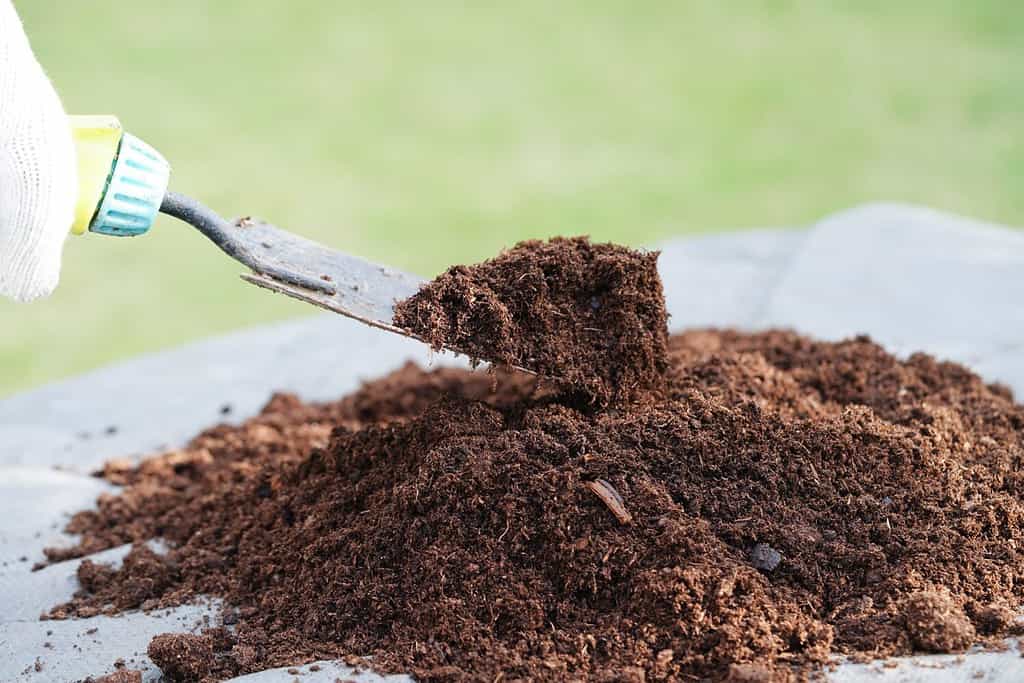
Peat moss is a commonly available organic fertilizer. It is spongy and holds water without being wet.
©sweet_tomato/Shutterstock.com
Although you don’t want to eat or drink your organic fertilizer, you can rest easy knowing that they are safe for the environment, your family, and your pets! Synthetic fertilizers can pose a threat to not only your yard but even your furry family members! They require a significant of fossil fuels to produce and process as well. Organic fertilizers are less concentrated and ecological and non-toxic in nature. Also, the regular use of organic fertilizer doesn’t lead to pollution. Instead, it contributes to a healthier and better future!
As it is in the name, organic fertilizers are made of organic material meaning biodegradable matter. These products don’t release harmful chemicals or salts that are deadly to nature. They are also environmentally friendly, sustainable, and renewable.
7. Buying Organic Fertilizers Can Help in the Long Run
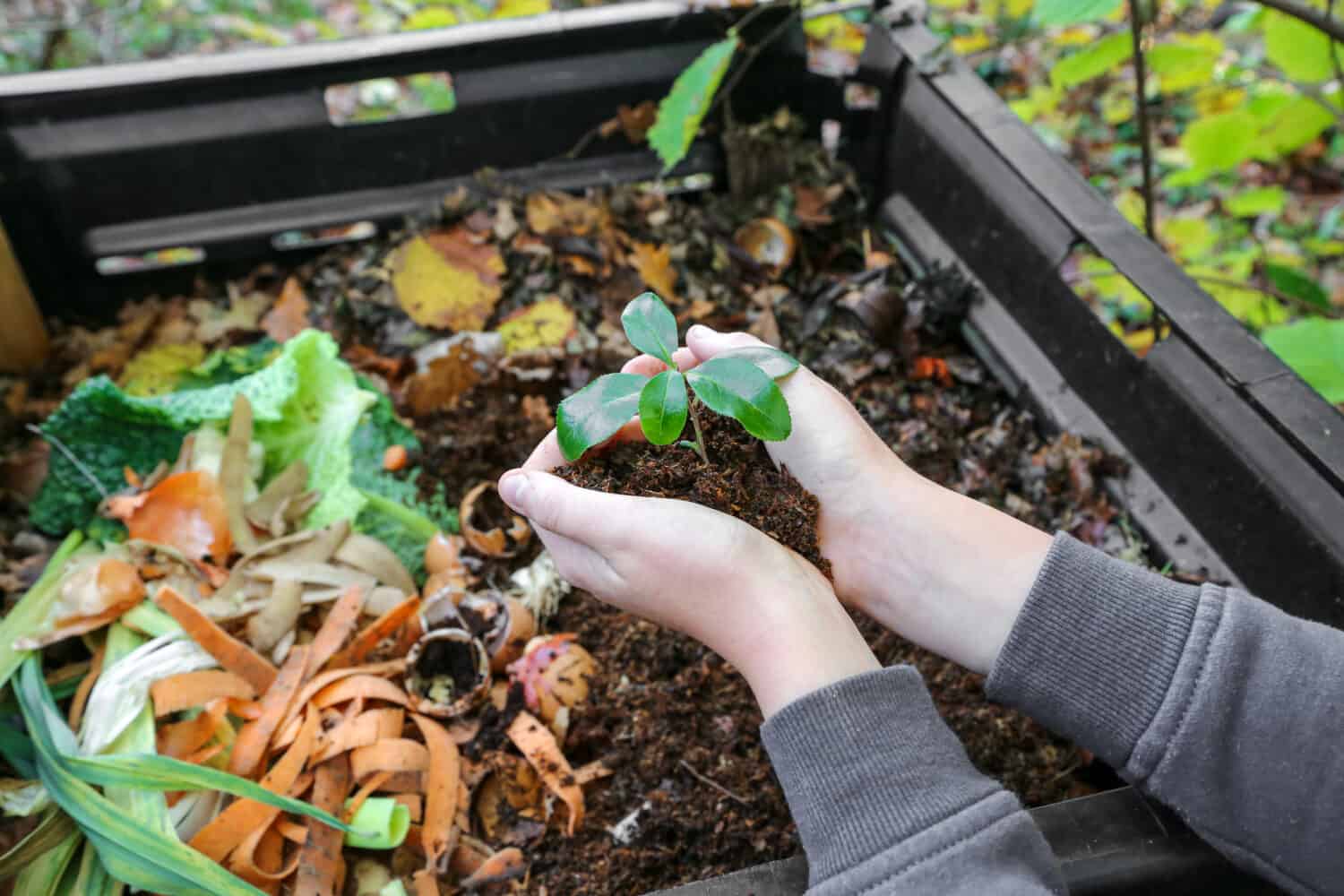
Some organic fertilizers are made from farms, while others are processed in a factory.
©Jerome.Romme/Shutterstock.com
Although organic fertilizer can be more costly than synthetic, it also reduces the need for pesticides and the overall nitrogen, phosphorus, and potassium requirements. Due to this reduction, organic fertilizers can sometimes be a cost savings or at least, cost neutral.
Also, as mentioned above, since most organic nutrients are slow release, if you add organic material to the soil you don’t need to apply it nearly as often. This can also be cost-effective in the long run.
8. Organic Fertilizers Are Easy to Apply

Organic fertilizer can be applied with bare hands and no fear!
©Abhi photo studio/Shutterstock.com
Since organic fertilizers are safe, they are also easy to apply compared to their synthetic counterparts. They are extremely user-friendly, and you do not need any protective clothing or gadgets when using these natural products. Also, if you do end up spilling or putting too much fertilizer on an area, it is a no harm, no foul situation due to the organic material.
You can even make your own organic fertilizer if you don’t have the budget to buy it in-store. Composting is a great way to save money on fertilizers, and you know exactly what it is made of, so applying it to your yard and plants is a breeze! You can also buy organic fertilizers from local sellers such as dairy farmers that sell composted manure. Again, they will be able to tell you what the fertilizer is made of so you will know exactly what is feeding your plants.
9. Organic Fertilizers Combat Diseases and Pests Naturally
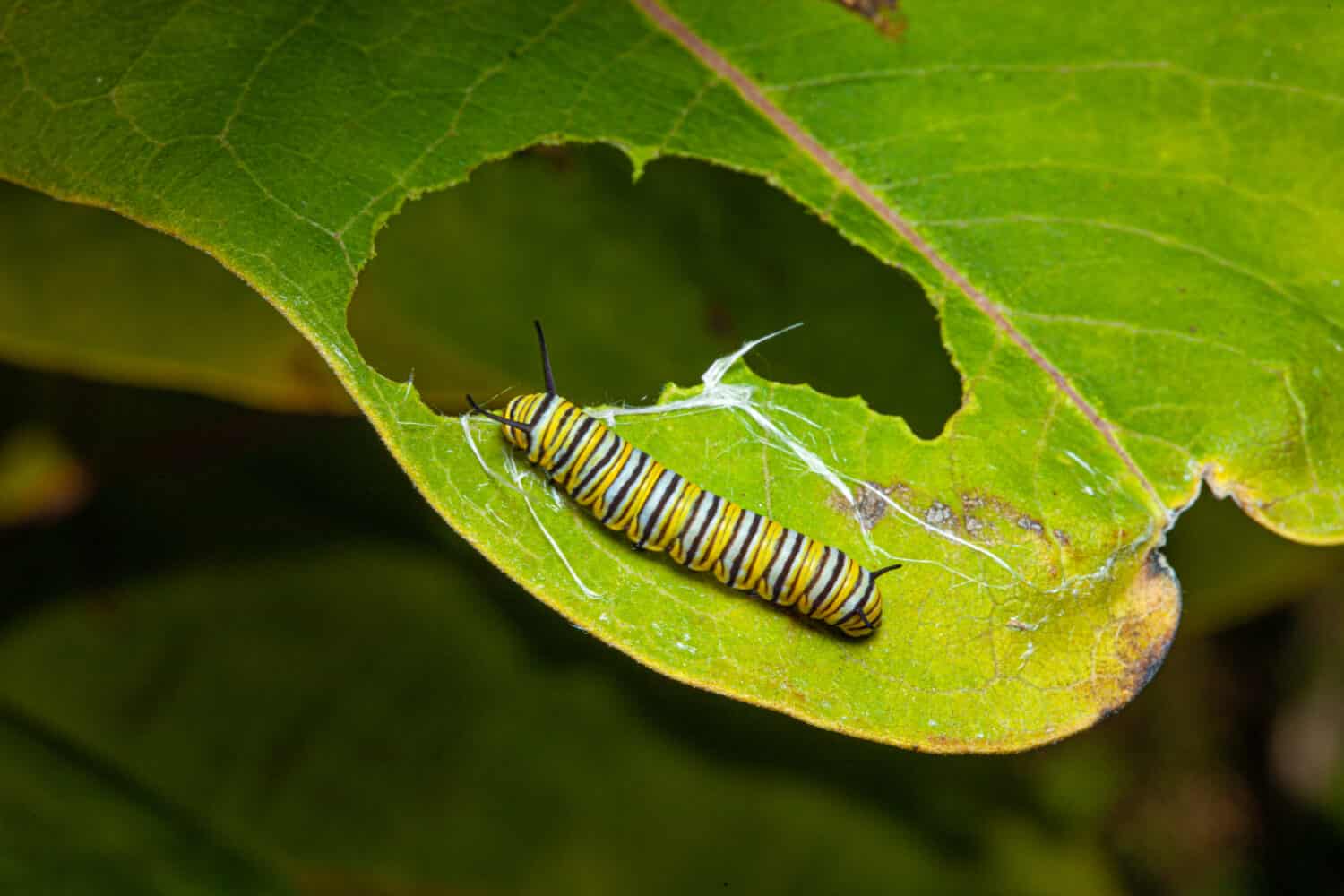
Organic fertilizers can safely deter pests and stop diseases from occurring in your plants.
©K Hanley CHDPhoto/Shutterstock.com
It is found that high nitrogen levels in plant tissue can decrease resistance and increase susceptibility to pest attacks. Organic fertilizers can be made to fight against diseases and pests in a natural manner. There are organic materials in the fertilizers that are more resistant to fungi or insect infestations.
You may read that organic fertilizers attract pests, and this is true. However, they attract good insects including ladybugs, bees, and dragonflies that will eat pests that are dangerous to your garden’s health. The fertilizers help create a balanced insect ecosystem in your yard.
10. Organic Fertilizers Save Time and Money
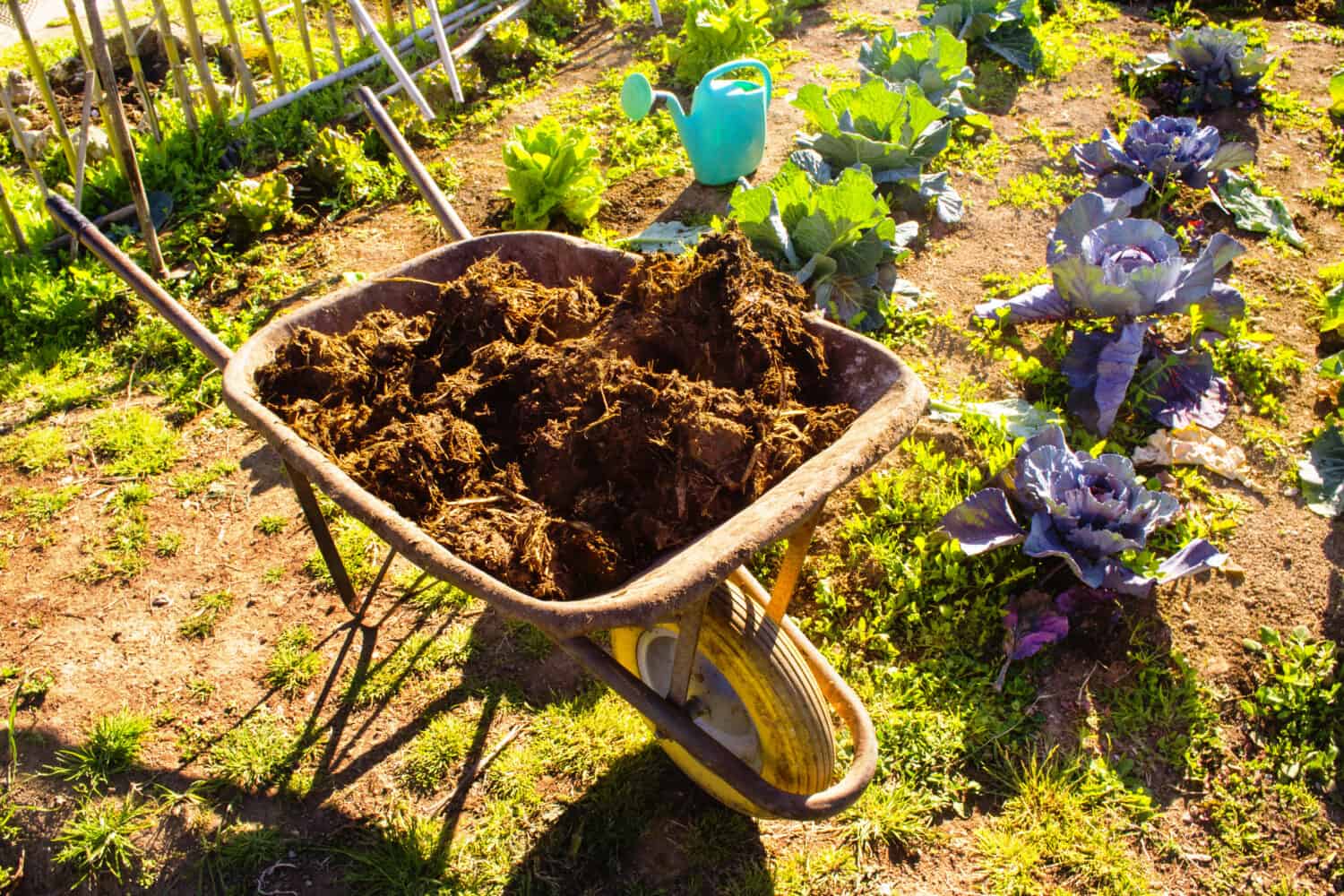
Organic fertilizer can be rather stinky because it’s derived from plant and animal sources.
©filippo giuliani/Shutterstock.com
These fertilizers naturally feed plants which leads to less time and money spent on additional substances. Gardeners even create their own compost! Also, it is more difficult to over-fertilize your lawn if you’re using organic fertilizer due to its slow release of nutrients. Since your lawn is slowly absorbing this type of fertilizer, you fertilize it less often. Over time, fewer applications mean less money spent and less time spent fertilizing.
And though organic fertilizer in the store can be more expensive, there are cheaper options. Fertilizers such as worm castings are less expensive than synthetic and store-bought organic. Organic fertilizers also outperform the chemicals in synthetic fertilizers. It is hard to beat natural components that are literally made for healthy plant growth. Also, organic fertilizers are often self-propagating, again saving money in the long run. They are sustainable and will reproduce themselves without any help! For example, one creates compost by simply letting plants die and naturally fertilize the soil for the next set of plants.
Comparison of Synthetic and Organic Fertilizers
| Synthetic | Organic |
|---|---|
| Synthesized by a chemical process | Comes from a plant or animal |
| Usually higher concentrated | Less concentrated |
| Lower cost per pound | Higher cost per pound |
| Fast-release or slow-release | Usually slow-release |
| Fast-release products are more likely to burn if applied incorrectly | Less likely to burn |
| Focus on plant health | Focus on soil health |
| Doesn’t add organic matter to the soil | Adds organic matter to the soil |
The photo featured at the top of this post is © Singkham/Shutterstock.com
Thank you for reading! Have some feedback for us? Contact the AZ Animals editorial team.






